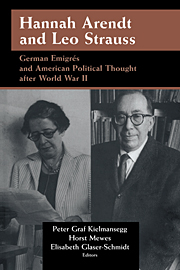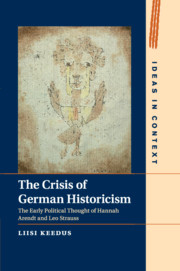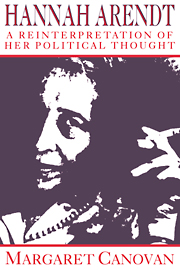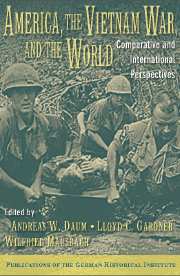Hannah Arendt and Leo Strauss
This volume on Hannah Arendt's and Leo Strauss' impact on American political science after 1933 contains essays presented at an international conference held at the University of Colorado at Boulder in 1991. The book explores the influence that Arendt's and Strauss' experiences of inter-war Germany had on their perception of democracy and their judgment of American liberal democracy. Although they represented different political attitudes, both thinkers interpreted the modern American political system as a response to totalitarianism. The contributors analyse how their émigré experience both influenced their American work and also had an impact on the formation of the discipline of political science in postwar Germany. Arendt's and Strauss' experiences thus aptly illustrate the transfer and transformation of political ideas in the World War II era.
- Explores the effect of their direct experiences of totalitarianism on two major political thinkers
- Current growth of interest in Arendt and her ideas
- Presents work by both German and American scholars
Product details
September 1997Paperback
9780521599368
224 pages
229 × 153 × 16 mm
0.315kg
Available
Table of Contents
- Introduction Peter Graf Kielmansegg
- Part I. Hanah Arendt:
- 1. Hannah Arendt and the theory of democracy: a critical reconstruction Helmut Dubiel
- 2. The questionable influence of Arendt (and Strauss) George Kateb
- 3. Hannah Arendt: a German-American Jew views the United States and looks back to Germany Ernst Vollrath
- Part II. Leo Strauss:
- 4. Reflections on Leo Strauss and American education Timothy Fuller
- 5. Leo Strauss: the quest for truth in times of perplexity Jürgen Gebhardt
- 6. Leo Strauss and Martin Heidegger: Greek antiquity and the meaning of modernity Horst Mewes
- 7. Leo Strauss: German origin and American impact Alfons Söllner
- 8. The Modern World of Leo Strauss Robert P. Pippin
- Part III. Roundtable Discussion: Bibliography
- Contributors
- Index.








